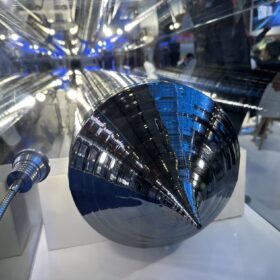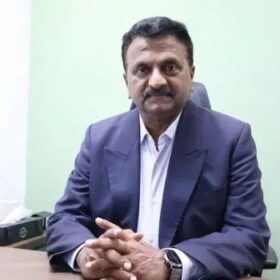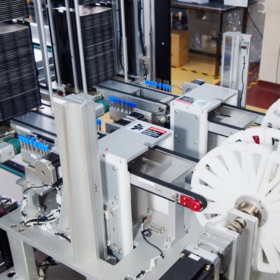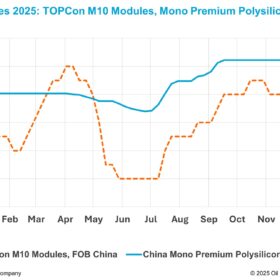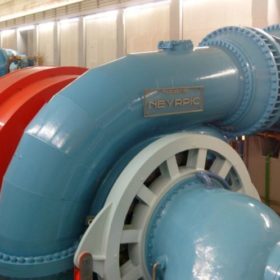According to industry estimates, India could need to recycle over 1.2 million EV batteries annually by 2030. This number is anticipated to exceed 14 million by 2040. In a major step toward realizing Prime Minister Narendra Modi’s vision for a Green and Self-Reliant India and to further strengthen the nation’s battery recycling ecosystem, NavPrakriti has started the operation of Eastern India’s first advanced lithium-ion battery recycling facility. This milestone arrives as the country braces for a significant rise in battery waste, spurred by the rapid adoption of electric vehicles (EVs), stationary energy storage for grid and renewable integration, telecom infrastructure, data centers, and consumer electronics.
As per the industry estimates, the lithium-ion battery demand in India is set to reach exponentially to 54 gigawatt hours (GWh) by FY27. However, batteries from consumer electronics, telecom towers, and backup systems are already reaching end-of-life, and the nation’s first generation of EV batteries will begin entering the waste stream within the next 12 to 24 months. Experts warn that, much like plastic and e-waste, India is on the verge of a battery waste surge, threatening environmental and resource security if not managed responsibly.
While a few recycling units have emerged in the Delhi NCR region, they have lacked proper recycling infrastructure in other parts of the country. Although vast regions such as Eastern India, including West Bengal, Odisha, Jharkhand, Bihar, and Chhattisgarh possess certain advantages for a battery recycling plant in terms of its geography. NavPrakriti’s new plant, situated near Kolkata, is set to become a hub for responsible battery disposal and critical mineral recovery in these underserved states.
Akhilesh Bagaria, Founder of NavPrakriti, said, “Prime Minister Modi’s focus on the circular economy and sustainable technology has inspired a new wave of innovation in India. Our facility is a testament to the potential of indigenous solutions and local entrepreneurship. We are proud to be the first in Eastern India to support both government policy and the urgent need to address battery waste. With the right support, we can turn today’s waste into tomorrow’s resource, powering India’s green future.”
With the global battery recycling market expected to exceed USD 30 billion by 2030, India has a unique opportunity to claim a meaningful share. Prime Minister Narendra Modi has repeatedly emphasized the importance of sustainable development, resource circularity, and indigenous innovation as pillars of India’s future. The government’s recent ₹1,500 crore scheme for battery recycling and refining, announced under the National Critical Mineral Mission, underscores this commitment. The scheme aims to promote domestic recycling capacity, reduce dependence on imported critical minerals, and ensure safe, environmentally friendly processing of used batteries.
Nav Prakriti’s facility is a direct response to this forward-looking policy. It operates on cutting-edge indigenous technology developed by the Centre for Materials for Electronics Technology (C-MET), eschewing foreign solutions in favor of locally designed processes, a move that echoes the government’s Make in India and Atmanirbhar Bharat initiatives.
With a current mechanical pre-treatment capacity of 1000 tonnes per month, scalable to 2000 tonnes as market demand grows, NavPrakriti is already processing end-of-life batteries from various sources, including consumer products, telecom operations, and industrial users. The company is exploring new partnerships with major battery manufacturers, OEMs, and bulk battery users for collection and recycling under the EPR (Extended Producer Responsibility) framework, ensuring a consistent feedstock and regulatory compliance.
Nav Prakriti’s plant focuses on the recovery of aluminium and copper with various intermediary products rich in nickel, cobalt, manganese, and lithium, laying the groundwork for future hydrometallurgical refining. Plans are underway to expand into battery-grade chemical recovery and battery refurbishment for second-life usage for low-power residential and industrial applications, maximizing the value extracted from each battery.
Avnish Bagaria, Co-Founder and Director, NavPrakriti, emphasised, “At NavPrakriti, our mission goes beyond recycling. We are building a foundation for a circular, sustainable economy that empowers local communities and industry. We leverage advanced indigenous technology and form strong partnerships across the battery value chain. We are not just addressing today’s battery waste challenge but creating a blueprint for responsible resource management across India.”
The commissioning of NavPrakriti’s recycling plant marks a critical milestone for the region, providing infrastructure to manage the coming wave of battery waste and recover vital materials domestically. As India’s battery market continues to expand, initiatives like this, rooted in PM Modi’s vision and government-backed schemes, will be key to building a sustainable, self-reliant, and environmentally responsible energy future for the nation.
About NavPrakriti:
NavPrakriti Green Energies Pvt Ltd, established in 2024 and headquartered in Kolkata, is Eastern India’s first large-scale lithium-ion battery recycling and refurbishment company. With a vision to pioneer India’s transition to a circular and self-reliant battery ecosystem, NavPrakriti delivers end-to-end solutions spanning collection, recycling, refining, and second-life battery manufacturing. The company’s mission is to transform end-of-life batteries into raw materials for the next generation of cells, making India self-reliant in critical battery materials. NavPrakriti aligns its operations with the National Critical Mineral Mission (NCMM) and Battery Waste Management Rules 2022, viewing battery recycling as resource regeneration and a new mining frontier for India. The company employs a multidisciplinary team of 50+ engineers, chemists, and business professionals, supported by industry veterans and academic advisors.

